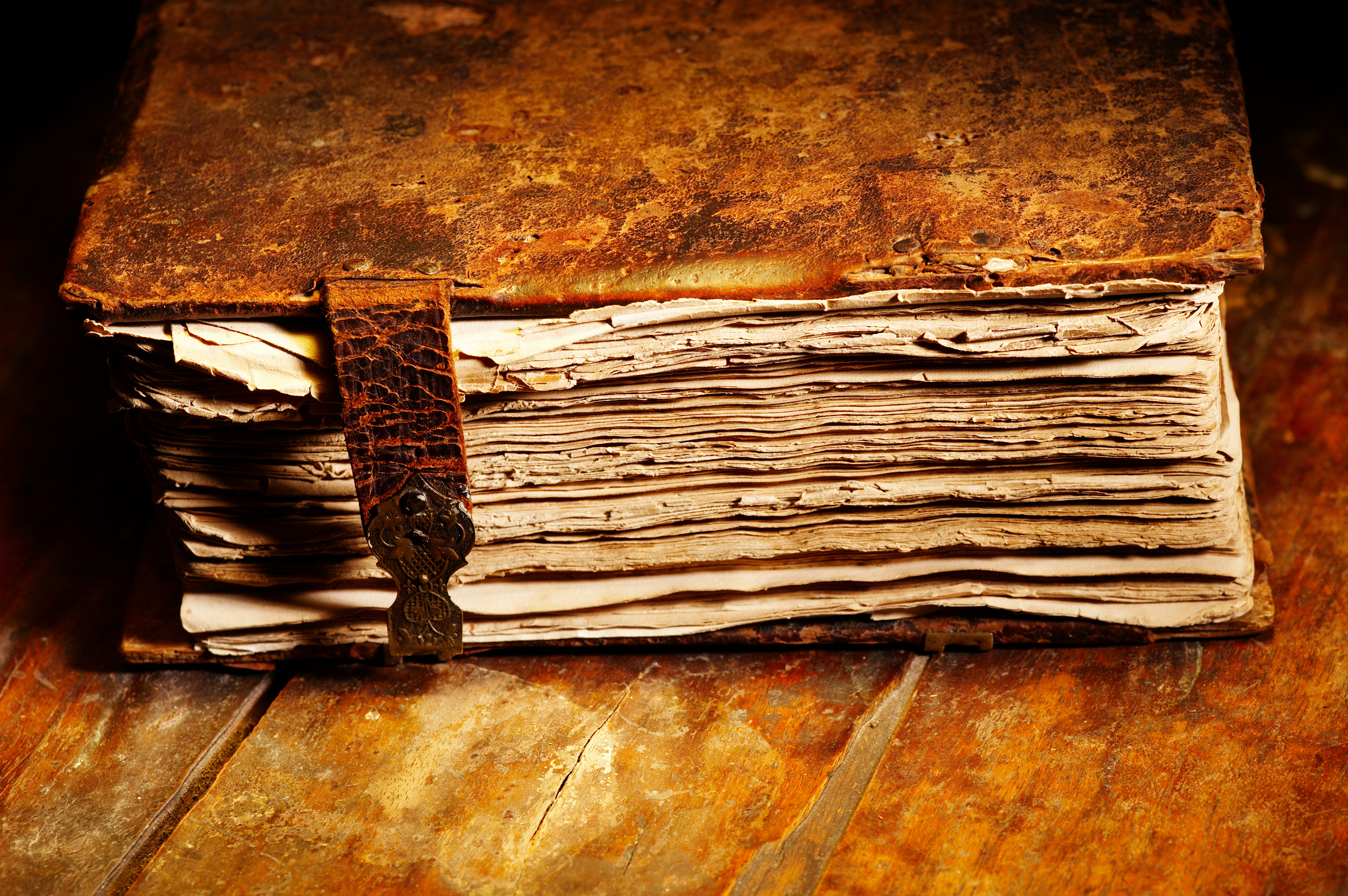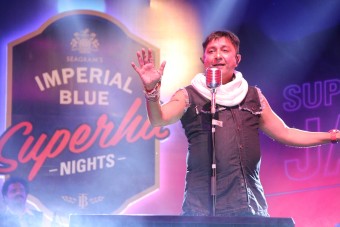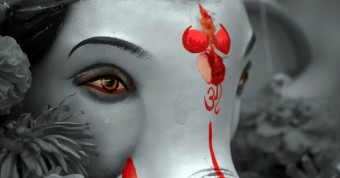Devanagri Script Or Roman Script For Goa’s Indigenous Language?
Before we delve too deeply into this story, let’s take a deep breath and acknowledge the elephant in the room. The debate in Goa about the script that best suits our beloved Konkani language happens to fall largely along religious lines, with Catholic Goans often favouring greater recognition of the Roman script and Hindu Goans more apt to favour the so-called script of India, Devanagri.
But when you look at the number of Hindu writers in Goa who prefer to write in Konkani using the Roman script, and then see the number of Catholic writers who consider Devanagri to be sublime, you will understand that this is no simple issue.
A little housekeeping is in order before we continue. The Konkani debate in Goa is not between those who favour the Roman script versus those who favour Devanagri (used to write a large number of Indian languages, including Hindi). It’s between those who think Goa’s 1987 Official Language Act, which states that Konkani is the language of Goa only in Devanagri, should be amended to recognize the Roman script, and those who think the act is just fine as it is.
Why shouldn’t the Roman script get a fair shake, say proponents, especially when you consider that the greatest literary contributions of Goa have been made using the good ol’ Roman ABC’s during the past five centuries? The tradition of Konkani written with Roman script is actually much richer and longer, if you take into account that Konkani came of age as a written language, rather than just a spoken one, during the 451-year Portuguese era, say these Roman-script proponents.
Hold on there, says the pro-Devanagri crowd. Roman-script Konkani has been thriving since the Goan language act was enacted 28 years ago, and changing the status quo now will accomplish little other than to stoke communal disharmony. This let-sleeping-dogs-lie argument has power, especially since the Dalgado Konkani Akademi, one of the main sponsors of Konkani literature, in recent times has made a big push in favour of the Roman script. Besides, say Devanagri advocates, the traditional Indian script jives much better with the phonetic sounds of Konkani.
In the background to this heated Goan debate is a fact that few discuss but is present before all our eyes. With all the emigrations to Africa, the Middle East, Canada, Europe and other destinations – and with Goa becoming an integral part of India over the past five decades – the percentage of Catholics in the state has decreased from 40 percent at the time of liberation in 1961 to around 25 percent today.
Is it any wonder that Catholics feel slighted that the Roman script was unceremoniously excluded from the Official Language Act?
One might think that this could be the heyday of Devanagri for Goan Konkani, what with the wave of Hindu nationalism now sweeping India in the wake of the Narendra Modi onslaught. But just like everything else about this debate, things are not so simple. Goa’s former BJP Chief Minister Manohar Parrikar, now India’s Defence Minister, made significant concessions to the cause of recognising the Roman script (much to the chagrin of his detractors, who considered it part of a divide-and-rule strategy).
Edmer Barreto, a 17-year-old tiatr playwright in Goa, finds the Roman script far more comfortable than Devanagri.
“Devanagri limits us to a geographical area of Goa. But when I need to converse with my friends abroad in Konkani, the Roman script is most user friendly. So why do we even have to learn this?” says Barreto.
Of course, Goans using Roman will always say their script is easier and those using Devanagri will make the same argument for their side.
“Devanagri Konkani is a concocted language. It is not proper Konkani,” insists Ramnath Pai Raiker, a Marathi writer. “There is a tremendous use of Marathi words in Konkani ‘manufactured’ by Devanagri writers. This defeats the very purpose of having another language. There are so many words borrowed directly from Marathi and phrases too with some literal translations as well, thus taking the grammar of Konkani language for granted,” says Raiker.
To be sure, Devanagri advocates can make a similar argument about Portuguese. Roman Konkani borrows a lot from Portuguese, they might argue, and the debate would go on and on, ad nauseum.
“Well, if Konkani in the Roman script has Portuguese influences and with due reason, given that Portuguese ruled Goa for about 450 years, if Roman Konkani is given its rightful place of equality and is allowed to flourish and standardize, these words too can be removed when not required anymore,” counters Father Pratap Naik from the Thomas Stephens Konkani Kendre, a centre dedicated to research and development of Konkani in the Roman script.
But such is the complexity of this debate that another Catholic priest, Father Mousinho De Ataide, argued in 2008 that Devanagri is better suited to Konkani than the Roman script.
“I do not agree with the pronunciations of the words in the Roman script and I believe that one script would not only allow standardization of the language, but also standardization of pronunciations as well,” he wrote.
He also suggested, however, that amending the Official Language Act could be tedious, because it “would require Roman Konkani to be included in the educational system as well”.
Others believe that including the Roman script in the language bill could also encourage those who believe Marathi should be included as well, creating a cascade effect that could undermine the cause of Konkani preservation.
“There is another pro-Marathi lobby in Goa that begins to use the Roman script issue as a lever to try and include Marathi as an official language of Goa the moment talk about amending the language Bill comes up,” said Advocate Uday Bhembre’s excerpt from a daily in 2008.
Goa’s Assembly has the power to amend the bill, but there hasn’t been enough political will over the decades for anyone to act.
“The tension was created when this Bill was manipulated only to fit one script and douse another. Ultimately, will an attitude like that provide justice and fairness to the Roman script users and a sizeable section of Goa’s population?” asks Wilmix Wilson Mazarello, the convenor of the Roman Script Movement.
The question is, would amending the language law redress an unconscionable historical injustice, or merely stoke the simmering fires of Goa’s unspoken religious divide?
Konkani: Devanagri or Roman Script?
A Chronology
- Sahitya Akademi (New Delhi) gives recognition to Konkani as a distinct language, without mention of Script – Date : 26 February 1975
- Advisory Body of Sahitya Akademi recommended that Konkani should be only in the Devanagari Script -Date: 21 November 1981.
- Goa Legislative Assembly passes the Official Language Act -Date: 04 February 1987
- Churchil Alemao leads a morcha to Herald Office opposing the Official Language Act that included Marathi (in clause 2 (C)) and did not give a place to Konkani in Roman script –Date: 05 February, 1987
- Statehood given to Goa –Date: 30 May 1987
- Konkani was included in the Eighth Schedule of Constitution of India, without mentioning its script -Date: 20 August 1992
- Radharao Gracias (M.L.A.) tables Bill in Assembly asking equal recognition to the Roman Script -Date: 24 February 1994
- Dr. Wilfred D’Souza presents Private Member’s Resolutions in the Legislative Assembly of Goa with a request to give grants for promotion of the Konkani language in the Roman script -Date: 16 July 2004
- DKA writes a letter to Dr. Wilfred D’Souza, Dy. Chief Minister to give due recognition to Konkani in Roman script -Date: 10 July 2005
- Thomas Stephens Konknni Kendr writes to Mr. Luizinho Faleiro, Minister for education to give equal status and privileges to Konkani in Roman script -Date: 18 July 2005
- All Goa Citizens’ Committee for Social Justice and Action writes a letter to Mr. Pratapsingh Rane, the CM to demand for official recognition of Roman script in OLA -Date: 29 August 2005
- Jitendra Deshprabhu (Congress M.L.A) raises issue of inclusion of Roman Script during Debate on Demands of Official Language Act -Date: 30 August 2005
- Kuwait Konnni Kendr writes to CM of Goa to give equal recognition to Konkani written in Roman script -Date: 22 September , 2005.
- Dalgado Konknni Akademi organizes a huge Rally at Panjim to demand amendment to the OLA to recognize Konkani in Roman Script -Date: 10 February 2006
- Thomas Stephens Konknni Kendr writes a letter to Mrs. Sonia Gandhi , Chairperson of UPA to direct the Goa govt to amend the Official Language Act to add Konknni in Roman script -Date: 22 February 2006
- All Goa Citizens’ Committee for Social Justice and Action begins signature campaign in favour of recognition to the Roman Script. Sends 56,310 signatures with a petition to give recognition to Roman script in OLA to Dr. Abdul J. Kalam, the President of India -Date: 30 June 2006
- DKA writes a letters to Mr. Pratapsingh Rane,CM; Dy. CM and all the Cabinet Ministers to amend the Official Language Act -Date: 03 July 2006
- All Goa Citizens’ Committee for Social Justice and Action writes a letter to Mrs. Sonia Gandhi, Chairperson of UPA and President of Indian National Congress to give recognition to Konknni in Roman script -Date: 04 July 2006
- Thomas Stephens Konknni Kendr writes a letter to Mr. Pratapsingh Rane,CM to amend the Official Language Act -Date: 11 July 2006
- Mr. Ulhas Buyanv writes a letter to Mrs. Sonia Gandhi , Chairperson of UPA to amend the Official Language Act -Date: 12 July 2006
- DKA writes a letter to Mrs. Margaret Alva, Gen. Secretary of All India Congress committee to amend the Official Language Act -Date: 21 July 2006
- RLAF writes a letter to Mr. Pratapsingh Rane, CM not to recognise the authority of All India Konkani Parishad -Date: 27 July 2006
- Thomas Stephens Konknni Kendr writes a letter to Mrs. Sonia Gandhi, Chairperson of UPA to amend the Official Language Act -Date: 01 August 2006
- Again Thomas Stephens Konknni Kendr writes a letter to Mrs. Sonia Gandhi , Chairperson of UPA to amend the Official Language Act -Date: 26 February 2007
- Mr. Tomazinho Cardozo writes a letter to Mr. Pratapsingh Rane, the Chairperson of Kala Academy to demand for justice to writers and to their literature in Konknni in roman script -Date: 15 October 2007
- Thomas Stephens Konknni Kendr writes letters to the speaker of Goa Legislative Assembly and Mr. Manohar Parrikar, the opposition leader to delete the clause “Konkani language means Konkani in Devanagari script” in OLA -Date: 20 June 2008
- In Goa Legislative Assembly during DEMANDS, 8 members including the CM spoke on the OLA. The demand for discussion was placed by Mr. Manohar Parrikar, the opposition leader -Date: 25 August 2008
- All Goa Citizens’ Committee for Social Justice and Action sent a memorandum to Mrs. Pratibha Patil, the President of India to give recognition to Konkani in Roman script in OLA -Date: 15 November 2010
- Theatre Art & Cultural Training Institute (Goa) sends Legal Notice to Sahitya Akademi (* New Delhi) to award Konkani Books written in the Roman Script -Date: 16 April 2012
Note: The above chronology is based on research by the Thomas Stephens Konknni Kendr (TSKK), a Konknni research, educational and cultural centre named after the sixteenth century English Jesuit, Fr Thomas Stephens (1549 – 1619), a renowned linguist and Marathi poet.




